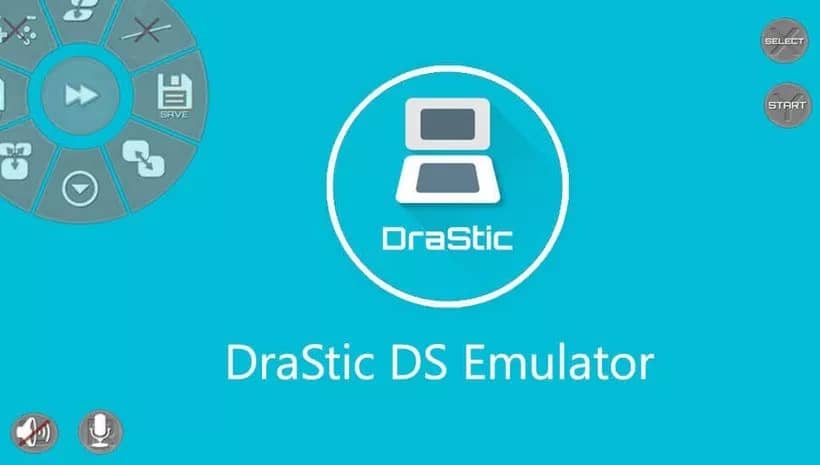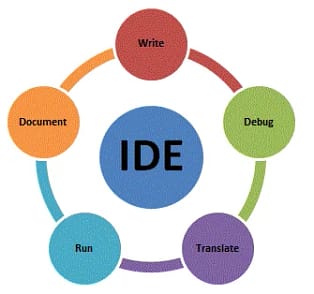Introduction to Emulator
Emulators have become an essential tool for gamers, tech enthusiasts, and anyone looking to experience the nostalgia of retro games. But what is an emulator exactly and how does it work?
Join us as we dive into the basics of emulators and learn how this works its basic features and much more. So let’s get started!
What is an Emulator?
An emulator is a software or hardware device that mimics the functions of another system or device, allowing it to run programs and applications as if it were the original system. I hope now you now what is an emulator for which you are here.
It essentially creates a virtual environment for a different operating system, allowing users to test and use software that would not normally be compatible with their computer.
Emulators have been around since the 1960s and have evolved significantly over time. Initially, developers used them primarily to test their software on different platforms without needing access to the actual hardware.
However, emulators are now widely available for everyday users and have become popular tools for retro gaming enthusiasts and app developers.

How Does an Emulator Work?
In simple terms, an emulator translates code from one platform to another in real-time. When a program is run on an emulator, it reads instructions written for the original operating system and translates them into instructions suitable for the host operating system.
This allows programs written for a specific platform or architecture to run seamlessly on any other platform supported by the emulator.
Types of Emulators
There are two main types of emulators: software emulators and hardware emulators.
Software Emulators – These computer programs mimic the behavior of other systems/software within your existing operating system. Examples include virtual machines such as VirtualBox or VMWare, which create a complete virtual environment with its CPU, memory, storage, etc.

Hardware Emulators – As opposed to software emulators which simulate platforms entirely through code interpretation/emulation; these devices are physical boards/instruments designed specifically to replicate hardware behaviors such as gaming consoles or arcade machines.
What Can You Do with an Emulator?
1) Play Retro Games & Apps – With emulations becoming extremely accurate these days comparatively speaking; users can play games on almost any retro console in existence- even things like Nintendo’s GameBoy
2) Debugging and Development – Emulators are very helpful when developing applications or games. They make it possible to test a program on multiple platforms before its release, without needing physical devices.
3) Mobile Testing – For developers looking to create mobile apps or games, emulators allow for testing on different screen sizes, resolutions, and operating systems without the need for actual devices.
4) Run Older Programs/Operating Systems – Emulators enable users to run older software and operating systems that may not be compatible with their current devices.
History of Emulator
The concept of emulators can be traced back to the 1960s, with the invention of mainframe computers and their complex operating systems.
The first known emulator was an application called IBM 7090/94 IBSYS Simulator, which allowed developers to simulate the IBM operating system on a different computer.
In the 1970s and 1980s, as personal computers became more popular, developers started working on emulating home video game consoles. These early emulators were mostly created by avid gamers who wanted to play their favorite console games on their PCs.
One notable example is Nesticle, an emulator for the Nintendo Entertainment System (NES) released in 1997.
One significant milestone in the history of emulators was the release of Bleem! in 1999. It was a commercial emulator for PlayStation games designed specifically for Windows computers.
Despite some legal issues with Sony, Bleem! gained immense popularity among gamers as it provided a convenient way to play PlayStation games without owning the actual console.
Another noteworthy event was the development of the Dolphin emulator for Nintendo GameCube and Wii consoles in 2003.

This open-source project brought emulation to a new level by offering features like high-resolution graphics rendering and savestates. Dolphin quickly gained a massive following among gaming enthusiasts all over the world.
Today, emulators continue to evolve, with new versions being released regularly to improve compatibility and performance.
Some emulators even offer additional features like online multiplayer capabilities, making it possible for users to play classic games with friends over the internet.
What are the uses of an Emulator?
Emulators, in simple terms, are software programs that mimic the functions of a particular hardware or operating system on a different platform.
They have become an essential tool for developers, gamers, and other users who need to run applications or games that are not compatible with their current devices.
So what exactly can you do with an emulator? Here are some of the most common uses of emulators:
1. Run Old or Incompatible Software
One of the main purposes of emulators is to allow users to run old or incompatible software on modern devices. For example, you may have an old computer game that only runs on Windows 98, but your current computer is running on Windows 10.
With an emulator, you can easily play your favorite childhood game without having to dust off your old PC.
In addition, emulators also make it possible for users to run programs or games from one operating system on another. This is especially useful for cross-platform development when developers need to test their applications on different devices before release.
2. Mobile App Development
With the increasing demand for mobile apps, developers often need to test their apps across various devices and operating systems before launching them in the market.
Emulators provide a cost-effective and efficient way for developers to create and test mobile apps without having access to each physical device.
Moreover, emulators come equipped with debugging tools and other features that help developers identify and fix any issues with their app before it goes live.
3. Gaming
Emulators have gained popularity among gamers as they offer a way to play retro console games on modern devices such as smartphones and PCs.
There are emulators available for various gaming consoles like PlayStation, Nintendo Switch, Gameboy Advance, etc., allowing users to relive their favorite childhood games without having to own the actual console.
Additionally, emulators also offer features like save states (saving progress at any point), turbo buttons (speed up gameplay), and cheat codes, enhancing the gaming experience.
3. Virtualization and Testing
Emulators are also widely used for virtualization and testing purposes. They allow users to create multiple virtual machines on a single physical device, making it easier to test different operating systems or configurations without having to set up a separate machine for each.
Moreover, emulators are often used for penetration testing and security research as they provide a safe and isolated environment to test potential vulnerabilities without risking the actual system.
What are the features of an Emulator?
- Platform Compatibility: One of the key features of an emulator is its ability to replicate the functionalities and behavior of a specific platform or operating system. This means that you can run programs or applications designed for one platform on another with ease.
- Customization Options: Emulators come with various customization options that allow users to fine-tune their experience according to their preferences. These options include screen resolutions, hardware configurations, and even control schemes for gaming emulators.
- Multi-Instance Support: Many emulators offer the feature of running multiple instances simultaneously, meaning you can have multiple virtual devices running at once on a single machine.
- Save States: Another useful feature offered by emulators is the ability to save your progress in a game or simulation at any given point in time. This allows players to resume gameplay from the exact spot they left off without needing to start over again.
- Cross-Platform Support: With advancements in technology, many modern emulators now support cross-platform usage, which means that you can run them on various devices such as smartphones, laptops, tablets, etc., irrespective of their respective operating systems.
- Debugging Tools: Certain advanced emulators come equipped with debugging tools that enable developers to identify and fix errors in their code quickly.
- Plugins/Add-ons: Emulators often provide plugins or add-ons that enhance their overall capabilities and make them more user-friendly. For instance, some gaming emulators offer support for external controllers like keyboards and gamepads through plugins.
- Item Sharing between Virtual Device & Host Machine: With emulation software becoming more versatile every year; some newer programs even allow users to transfer files between the emulator and the host machine during runtime, making data sharing much easier.
- Easy Installation: Unlike physical hardware, emulators only require a simple installation process to get them up and running. This is a significant advantage for those who don’t have access to or can’t afford the actual device required for specific software.
Emulators are powerful tools that offer users an alternative to owning expensive devices by mimicking their functionalities on other platforms.
With continuous developments and improvements, emulators are becoming more efficient and user-friendly and are widely used in different fields such as gaming, app development, or even operating system testing.
FAQS:
Emulators can be a confusing topic for those who are new to the world of gaming and technology. To help clarify any doubts or questions you may have, we have compiled a list of frequently asked questions (FAQs) about emulators.
Q: What is an emulator?
An emulator is a software program that mimics the functions of another computer system or software on your device. In simple terms, it allows you to run applications or games designed for one platform on another platform.
Q: What devices can I use an emulator on?
A: Emulators are available for various devices such as computers, smartphones, and even gaming consoles. However, the availability of certain emulators may differ depending on the device’s operating system and hardware specs.
Q: Are emulators legal?
The legality of using emulators varies from country to country. Generally, if you own a physical copy of the game or software being emulated, it is considered legal to use an emulator.
However, downloading ROMs (read-only memory) files without owning the original game are considered piracy and therefore illegal.
Q: Which platforms can I emulate with an emulator?
A: There are various types of emulators available in the market that cater to different platforms such as gaming consoles like PlayStation, Nintendo, and Xbox; mobile platforms like iOS and Android; and even old-school systems like Commodore 64 and Atari.
Q: Does using an emulator affect my device’s performance?
No, as long as you have enough storage space and processing power on your device, using an emulator should not affect its performance significantly. However, running high-graphics games may require more resources from your device than usual.
Q: Can I connect controllers or other peripherals to my device while using an emulator?
Yes! Many modern-day emulators allow users to connect external controllers via Bluetooth or USB for a more authentic gaming experience. Some emulators even support peripherals like light guns and dance pads for specific games.
Q: Can I save my progress while using an emulator?
Yes, most emulators have a built-in saving feature that allows players to save their progress just like they would on the original platform. This makes it easy to pick up where you left off in a game without having to start from the beginning.
We hope this FAQ section has answered some of your questions about emulators. If you still have any doubts, feel free to do further research or reach out to our team for assistance.
Emulators can be a great tool for nostalgia and expanding your gaming experience, but remember to use them responsibly and within legal boundaries.
Conclusion:
Emulators have become an essential tool for developers and gamers alike in 2024. They offer a cost-effective way to test and play games on different platforms, making it easier to reach a wider audience.
Nowadays, the question is what the significance of an emulator is more asked than what is an emulator. But I hope now you have answered your question about what is an emulator.
With technological advancements, emulators have also evolved to support more complex systems and provide better performance.
Whether you are looking to develop or play games from older consoles or experiment with new operating systems, emulators are the way to go.
As we continue advancing technologically, the future of emulators looks bright and promising. So why not give them a try today?



